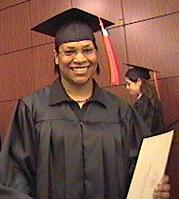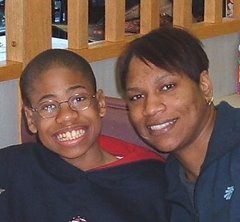Atlanta, GA (BlackNews.com) - Not long ago, the words "suicide" and "African Americans" were almost never mentioned in the same breath. Despite confronting challenges from slavery to Jim Crow to structural racism, blacks rarely took their own lives. It was a positive health disparity. Until now.
There is alarming evidence that the suicide rate for young African-American men is escalating, and just as much evidence that America's health-care system is ill-equipped to curb it.
Dr. Claire Xanthos, a health services research specialist, recently wrote a policy paper citing studies showing that from 1980 to 1995, the suicide rate for black adolescents rose from 5.6 to per 100,000 of the population. Put in starker terms: this doubling of the suicide rate for young black males has made it the third-leading cause of death among that demographic group.
Clearly, it is a complex problem that is directly related to life experiences of young African-American males in America. While the suicide rate for young black men has risen, the suicide rate for black women remains among the lowest of any demographic group.
So why are our young black men killing themselves?
Dr. Xanthos concludes there are many factors, and among them are the race-related challenges that these youths face. The data show that they go to jail, drop out of school and become victims of crime at rates far higher than their white counterparts. Moreover, young black males are more likely than not to live in a family environment that is less than ideal; roughly 70 percent of African Americans live in single-parent homes.
The combination of family stress, violence in their communities, and the stigma and discrimination they face is taking a toll on young black males. Some mental health specialists, such as Dr. Alvin Poussaint, argue that "death by cop" incidents should be counted as suicide. These are occasions when black youths are despondent and won't commit suicide, but purposely break the law so someone else will kill them.
"How many young men who put themselves in situations where it's very likely that they're going to get shot to death are actually committing suicide?" asked Dr. Poussaint in a recent interview on National Public Radio. "There is such a thing as what we call victim-precipitated homicide, which is suicide. The most classic example would be suicide by cop, which you read about in the newspaper from time to time, where people wanted to be shot to be killed because they were suicidal, but they didn't want to do it themselves...because there's still a stigma attached to committing suicide, so they'd rather have someone else kill them or have it seem like an accident."
This rising suicide tide can impact middle-class black teenagers in white suburbs, as well as those in inner-city neighborhoods. In fact, Dr. Xanthos argues that black youths living in white communities often face the trauma of not relating to their white neighbors and also feeling estranged from blacks from poorer, urban settings. Certainly, the death of James Dungy, the 18-year-old son of Indianapolis Colts coach Tony Dungy, underscored that suicide can strike the rich and poor.
What's clear is that black communities, healthcare professionals and public health officials must mobilize to meet the challenges presented by this problem.
The stigma towards mental illness in the black communities is so taboo that obvious signs that someone has a problem are frequently ignored, even by close family members and friends. The first step must come from parents and friends recognizing the behavior patterns that indicate someone has a problem, and then working to get help for that person.
There is also a crucial role to be played by public health programs, such as Medicaid, which must make it easier for young black men to receive counseling and treatments.
But once these teens get to treatment facilities another problem develops: the lack of black therapists, counselors and psychiatrists. According to data, blacks are about four percent of the nation's psychiatrists, three percent of the psychologists and seven percent of social workers. It's imperative that more African Americans be trained for those positions. The problems weighing on many black youths are created by racism and the family, educational and urban tensions that they face in everyday life. In these instances, an African-American counselor or physician who may be more likely to grasp the situation is needed to provide assistance.
Dr. Xanthos also raises the need for more "bicultural'' training for young black males. Or put another way, it is learning to survive in a white society. Such training would better prepare black youths for integration into schools and workplaces that are predominantly white, while also preparing black youths to confront and overcome the discrimination they are likely to face in American society.
This problem can no longer be ignored. It must be faced in our homes, our communities and by public officials in schools and health facilities.
The reality is that young black males face some of the biggest hurdles in our society, and if they are going succeed we all must do a better job of identifying people with problems and facilitating the treatment that can put them on a successful path.
(Dr. Henrie M. Treadwell, associate director of Development at the National Center for Primary Care of Morehouse School of Medicine, is also director of Community Voices, a non-profit working to improve health services, and health-care access, for all Americans. For print or broadcast interviews with Dr. Treadwell, please contact Alicia Ingram, 404-493-1724, ingramalicia@bellsouth.net.)
-END-
Forget what you haven't heard… Family site shares news, resources, announcements and free or low-cost ways to help us manage day-to-day living with autism.
Crystal Brown

About Me

- Crystal
- AutismConcepts.com and Child-Autism-Parent-Cafe.com share a large collection of useful autism information, resources, and how-to articles written by authors who are touched by autism, offering practical solutions to families. Particularly minority and underserved families and caregivers who may not know what to do or where to go for help.
